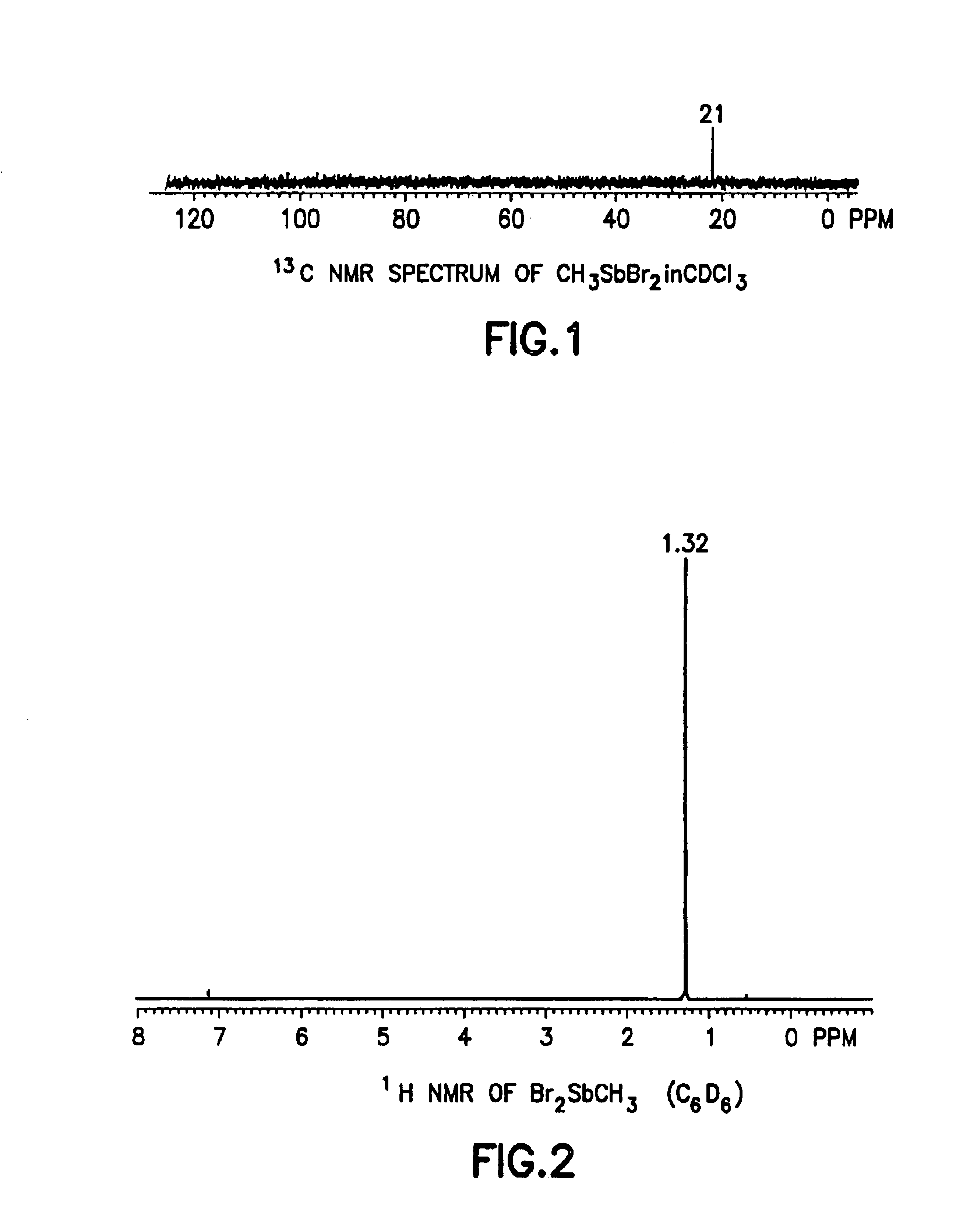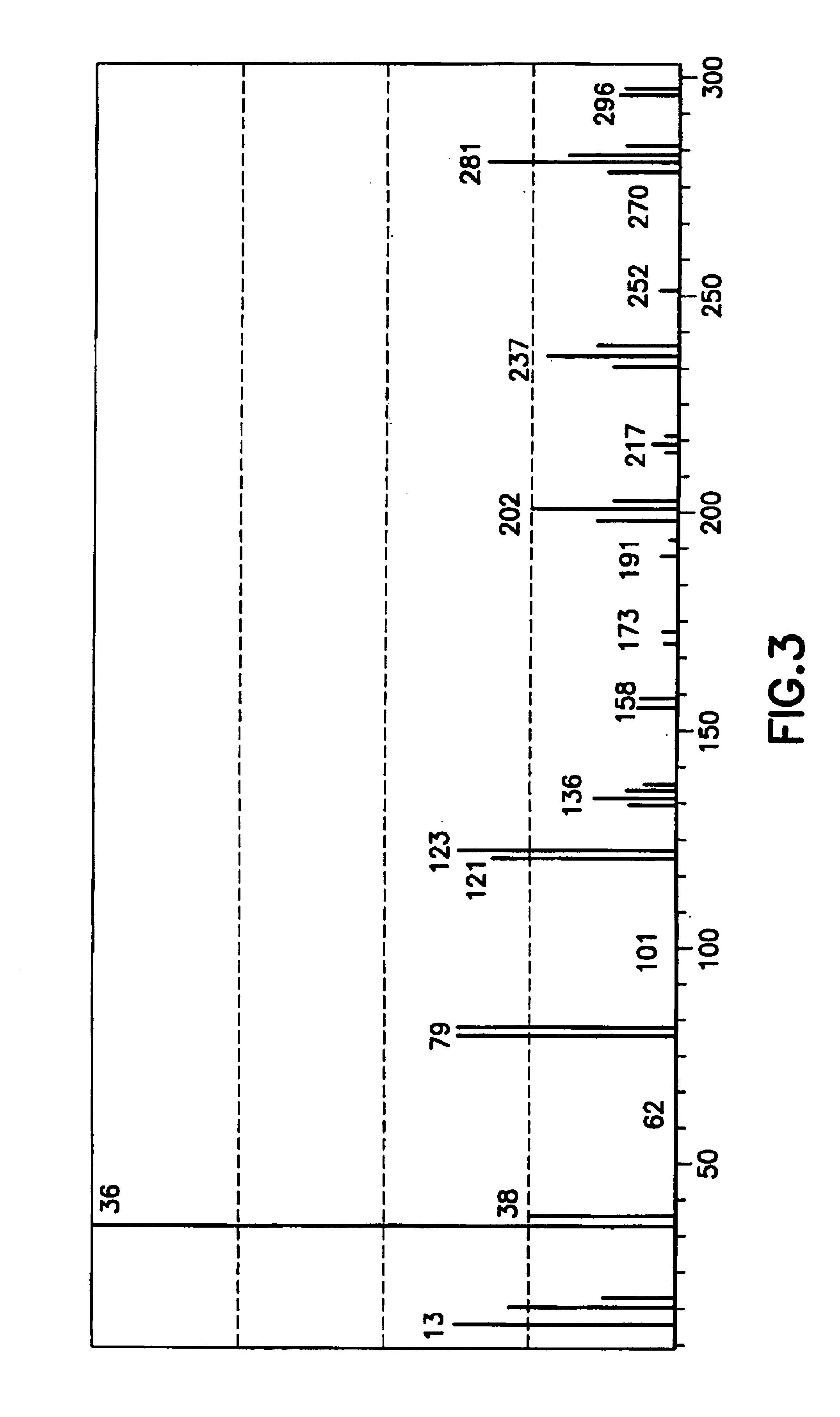Br2SbCH3 a solid source ion implant and CVD precursor
a solid source ion implant and precursor technology, applied in the direction of antimony organic compounds, antimony organic compounds, group 5/15 element organic compounds, etc., can solve the problems of junction breakdown, high mobility of lightweight p-type and n-type dopants, and problems such as problems
- Summary
- Abstract
- Description
- Claims
- Application Information
AI Technical Summary
Benefits of technology
Problems solved by technology
Method used
Image
Examples
example 1
In a nitrogen filled dry glovebox (Vacuum Atmospheres Model HE-553-4) 100 g (277 mmoles) of SbBr.sub.3 and 23.1 g (138 mmoles) of Sb(CH.sub.3).sub.3 were added to a flask which was equipped with a magnetic stirrer. The flask was removed from the dry glovebox and connected to a condenser while under nitrogen gas flow. The mixture was gently heated to about 70.degree. C. in an oil bath. In about one hour, substantially all of the solid SbBr.sub.3 was melted and the reaction mixture was a dark color. The temperature was maintained at 70.degree. C. overnight. The flask was wrapped with aluminum foil to prevent any additional reaction due to any light sensitivity of the reaction mixture. The reaction mixture was cooled to room temperature and the product solidified to a crystalline product. Vacuum sublimation was used to purify the product which was a light yellow crystalline product. After sublimation, the product yield of Br.sub.2 SbCH.sub.3 was about 80%.
The final product was characte...
example 2
Compatibility studies were conducted to explore the reactivity of the novel antimony compounds of the invention towards delivery and reaction container materials. In three Schlenk flasks, Br.sub.2 SbCH.sub.3, was mixed with a) a piece of aluminum foil (sample A); b) none (sample B); and c) a piece of stainless steel (sample C). All three samples were heated at 65.degree. C. for 15 hours. It was found that Br.sub.2 SbCH.sub.3 reacted with aluminum (sample A) and formed black solid metal material. There were no visible changes with samples B and C which was confirmed by NMR studies (not included). Therefore, it was concluded that aluminum reacts with the novel antimony compound Br.sub.2 SbCH.sub.3 and aluminum containers or introduction tubing systems should not be used with the Br.sub.2 SbCH.sub.3 compound. Preferably containers and transference systems are fabricated of stainless steel.
PUM
| Property | Measurement | Unit |
|---|---|---|
| temperature | aaaaa | aaaaa |
| temperature | aaaaa | aaaaa |
| thicknesses | aaaaa | aaaaa |
Abstract
Description
Claims
Application Information
 Login to View More
Login to View More - R&D
- Intellectual Property
- Life Sciences
- Materials
- Tech Scout
- Unparalleled Data Quality
- Higher Quality Content
- 60% Fewer Hallucinations
Browse by: Latest US Patents, China's latest patents, Technical Efficacy Thesaurus, Application Domain, Technology Topic, Popular Technical Reports.
© 2025 PatSnap. All rights reserved.Legal|Privacy policy|Modern Slavery Act Transparency Statement|Sitemap|About US| Contact US: help@patsnap.com


